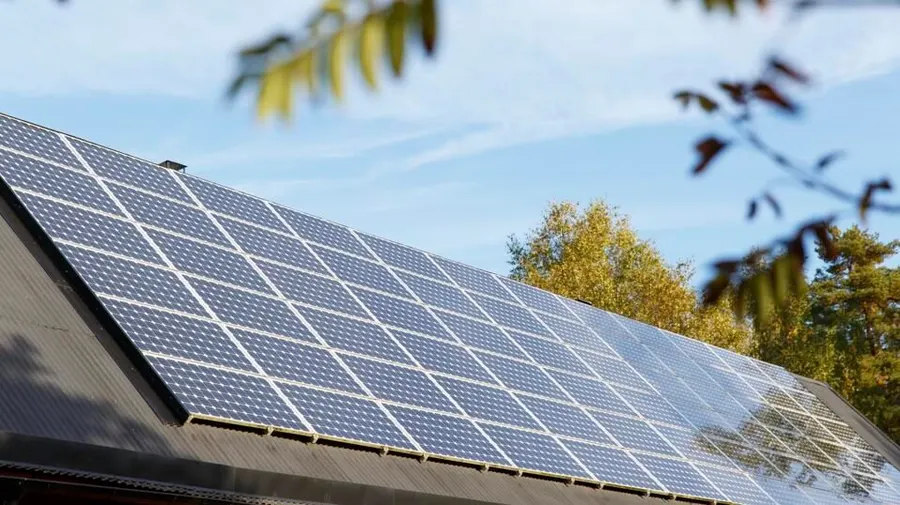Factors Influencing Solar Panel for Home Prices in India

The use of solar energy as a source of both sustainable and renewable electricity has garnered increasing attention in recent years. This trend is especially noticeable in India, where the government has aggressively supported the use of solar panels for home use via initiatives and subsidies. As more homeowners in India are considering putting solar panels in India on their roofs for the purpose of generating solar electricity, it is becoming more critical to get a grasp of the elements that influence the price dynamics of residential solar panels. As we look further into each one, we will discover the influence that it has on the price dynamics of the whole market.
Factors Affecting Solar Panel for Home Prices in India
Government Policies and Incentives
Solar panels are becoming more affordable for homes in India as a result of government regulations and subsidies. These factors have a significant impact on the affordability of solar panels. In order to encourage the use of solar energy, the government of India has implemented a number of programs and initiatives, such as the Jawaharlal Nehru National Solar Mission (JNNSM) and state-level policies. These programs offer financial incentives, tax credits, or subsidies upon installation, which results in a significant reduction in the initial costs associated with solar energy installation.
Quality and Type of Solar Panels
When it comes to putting solar panels in their houses, the quality and kind of solar panels are both critical factors in deciding the price of the finished product. When making their choice, homeowners should carefully consider the initial cost in comparison to the long-term advantages of monocrystalline panels, which are recognized for their efficiency and longevity. Polycrystalline panels and thin-film choices are often more affordable than monocrystalline panels.
Size and Capacity of the System
The size and capacity of the solar panel for home that is needed to power a house are determined by a number of criteria, including the amount of energy used, the amount of available roof space, and the amount of sun exposure. More extensive solar arrays will have a higher price tag; individuals who have higher energy requirements may need larger arrays, which will further raise the installation expenses.
Costs of Installation
Solar panel installations need labour, equipment, and permissions, all of which must be secured before any work can begin on the installation. However, employing a professional solar installation company that has experienced technicians could reduce risks by guaranteeing a more effortless and smoother experience and reducing the likelihood of future problems. These expenses vary depending on factors such as the complexity of the installation process, the conditions of the roof, and the regulations that are in place in the area from time to time.
Location and Availability
One of the most critical factors that determines how well solar panels perform their functions for the reasons for which they were designed is the position of the panels, as well as the amount of sunshine that is really available. Generally speaking, places that get a larger quantity of sunlight are more likely to create more electricity via solar power than regions that receive less sunlight. This makes solar power a more economically feasible and cost-effective method of renewable energy production. The effectiveness of solar panels may be negatively impacted by external factors such as surrounding buildings or trees that block sunlight.
Warranty and Maintenance
Whenever homeowners are contemplating the purchase of solar panels in India, they need to take into consideration the warranty and maintenance services that are provided by solar panel manufacturers and installation businesses. More extended warranties that come with dependable assistance may have a higher initial cost, but they may bring peace of mind and long-term savings by reducing the amount of money that would otherwise be spent on repairs or replacements that would otherwise come up under unforeseen circumstances in the future. Investing in panels of excellent quality from installation firms that have a good reputation will help you avoid having to deal with unanticipated repairs in the future.
Financial Incentives and Financing Solutions
Homeowners who are considering installing solar panels may be eligible for a variety of financial incentives and financing solutions to help cover the initial costs of the installation. These include tax credits, rebates, and solar financing programs that banks and other financial organizations offer. With a better understanding of these programs and incentives, solar power may become more accessible and inexpensive for them, which would ultimately lead to an increase in the overall adoption rates.
Bottom Line
In order for homeowners to make educated judgments about the purchase of solar energy for their houses, they must evaluate the criteria above and undertake considerable study carefully. Although the initial expenses may seem to be overwhelming, the long-term advantages of solar panel installation, which include lower monthly power bills, energy independence, and environmental sustainability, make it worthwhile to invest in solar panel for home. As India progresses toward renewable forms of energy, such as solar power, it will play an increasingly critical role in satisfying the rising need for energy while also minimizing the harmful consequences of climate change.





